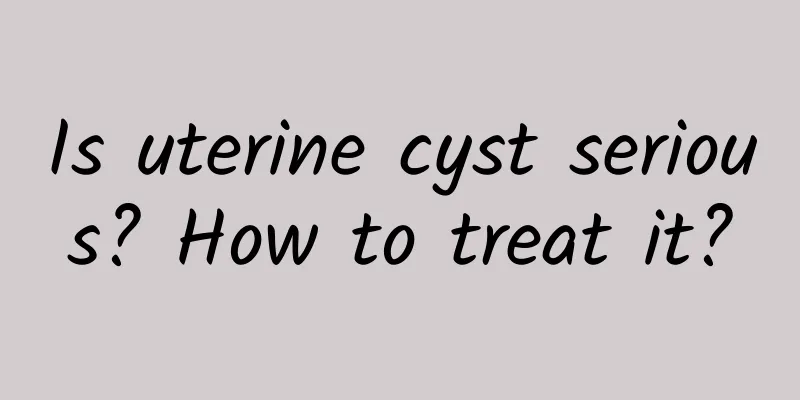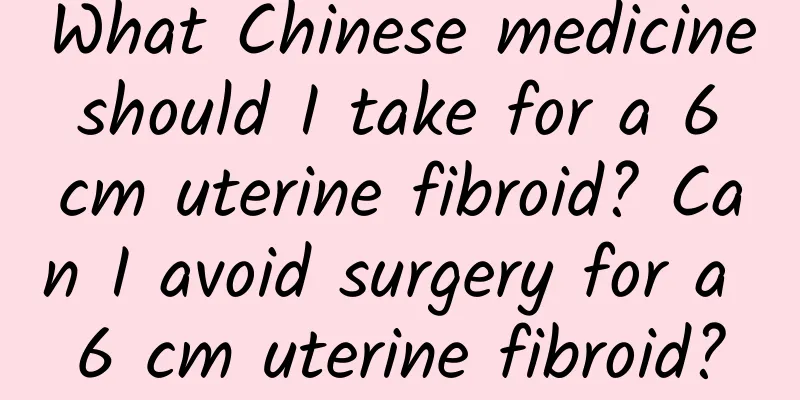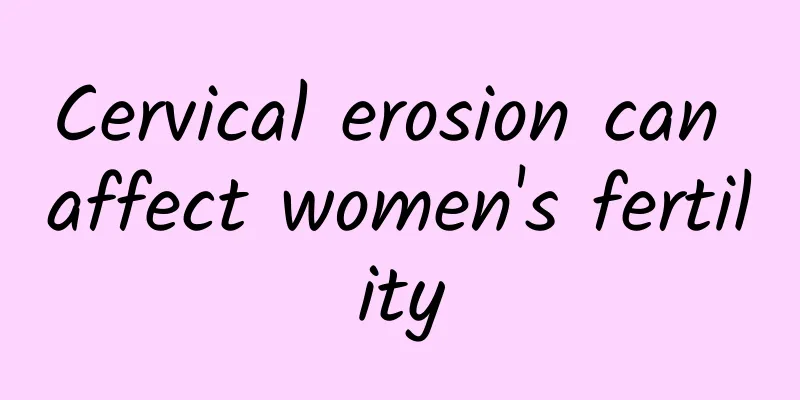Is uterine cyst serious? How to treat it?

|
The severity of uterine cysts depends on the specific circumstances. Mild cysts may have no obvious symptoms and can be observed regularly. However, if the cyst is large, accompanied by pain, irregular bleeding, or suspected to be a malignant lesion, it must be taken seriously and treated promptly, including medication, surgery, and lifestyle adjustments. 1. Possible causes Uterine cysts may be caused by a variety of factors, including abnormal hormone levels, chronic inflammation, or endometriosis. Long-term hormone imbalance can lead to cyst formation, while chronic gynecological inflammation may cause tissue hyperplasia. Genetic factors, lifestyle habits, and immune system abnormalities may also be potential causes. 2. Treatment methods 1. Drug treatment: For mild cysts or asymptomatic patients, doctors may recommend oral contraceptives or progesterone drugs to regulate hormone levels and inhibit further growth of cysts. The specific use of drugs should be carried out under the guidance of doctors. 2Minimally invasive surgery: If the cyst is large and causes obvious discomfort or is suspected to be malignant, laparoscopic surgery can be used to remove the cyst, which has less trauma and faster recovery. 3. Laparotomy: For malignant cysts, larger cysts or cysts in special growth locations, laparotomy may be required for removal, and further treatment strategies such as chemotherapy or radiotherapy will be determined based on the postoperative pathological results. 3. Daily conditioning 1. Balanced diet: Eat more foods rich in antioxidants, such as dark vegetables and fruits, and avoid irritating foods. 2 Appropriate exercise: such as yoga and walking, helps regulate hormone balance and improve immunity. 3 Regular check-ups: Especially for those with a family history or a history of gynecological diseases, it is recommended to undergo a gynecological ultrasound examination every year to detect potential problems early. Regular check-ups and scientific treatment are essential to ensure health. If you experience symptoms related to uterine cysts, you should seek medical attention as soon as possible for a clear diagnosis and take appropriate treatments under the doctor's advice to reduce risks and improve your quality of life. |
<<: Can I get pregnant and have a baby with endometriosis?
>>: Is cervical erosion and cervical hypertrophy easy to treat?
Recommend
Endocrine disorders can easily induce uterine fibroids
Uterine fibroids are a type of tumor that depends...
What is a dense ovarian cyst called?
What is the concentration of ovarian cysts called...
Which hospital is good for treating amenorrhea?
Amenorrhea is a menstrual disease that troubles m...
Improve blood circulation! Try these 3 points to correct your standing posture
In daily life, it is also very important to devel...
What are the contraindications of women's amenorrhea medication?
Amenorrhea and lactation syndrome are usually pit...
What medicine can cure moderate cervical erosion? Try these medicines for moderate cervical erosion
Cervical erosion is the most common form of cervi...
Is back pain in early pregnancy a symptom of threatened abortion?
Pregnant women are always suspicious in the early...
4 misunderstandings about cervical erosion
Cervical erosion is common in daily life. Most pe...
What are the ways to prevent endometrial tuberculosis?
Endometrial tuberculosis is a common infectious d...
What causes miscarriage? There are 5 reasons
There are many reasons for miscarriage, the most ...
How to cure dysmenorrhea?
How to cure dysmenorrhea? The occurrence of dysme...
What is the reason for irregular menstruation in a 12-year-old girl?
Irregular menstruation in a 12-year-old girl may ...
What causes cervicitis and how to treat it
Cervicitis is an inflammation of the cervix cause...
Effective nursing methods for amenorrhea after artificial abortion
Artificial abortion for female diseases is more c...
What medicine is good for pelvic inflammatory disease
Pelvic inflammatory disease is a pelvic inflammat...









